Announcements
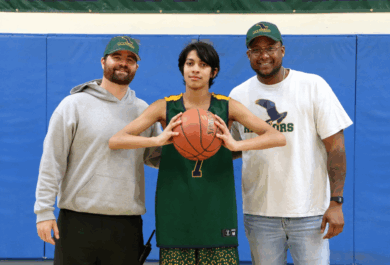
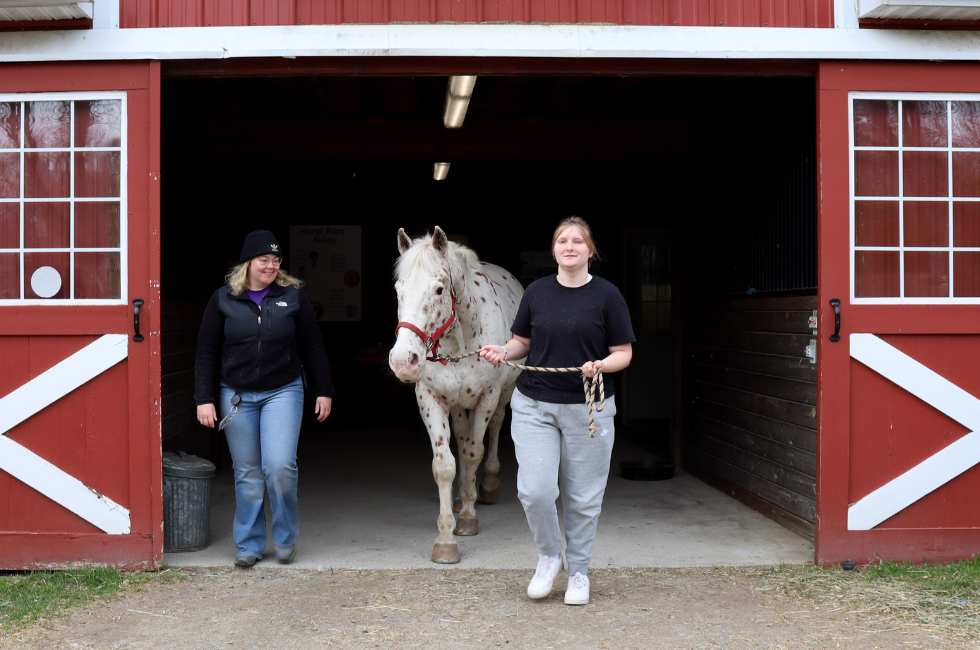
A small group of students watch three horses in the riding arena. While two of the horses engage in play, the other stands alone in the corner. “What do you notice?” asks Social Worker Jess Aiello. “Do the horses look content playing together? What do they do when they need a break from playing?”
As the students share what they see, questions shift inward and prompt the group to relate personal experiences. Jess asks how they feel when they’re on their own and watching other people have fun. Or what they do when they need a break from other people.
Green Chimneys students discuss scenarios like these during an animal-assisted activity called Herd Observation. Led by a clinician, they observe equine behavior and apply insights into human interactions or their own situations. For example, adding a new horse to the arena parallels the challenges of embracing change in human social environments—a situation particularly relevant to students who may be new to Green Chimneys.
Herd Observation is just one facet of Hoof Harmony, a specialized therapeutic group aimed at cultivating meaningful connections with horses, and translating these lessons into human connections. Through structured activities spanning several weeks, students practice new skills and develop a level of introspection, with the support of an equine partner.
Hoof Harmony helped Green Chimneys student Zoe grow. In the group, students are paired with their equine at random. When Zoe drew Gandalf’s name, she felt upset and did not want to work with the Appaloosa/ Draft crossbreed. She rode him previously and did not enjoy the experience. Additionally, it was hard for Zoe to see the other students draw horses they were excited about. She chose not to participate in a walk with the horses that first session.
The second week involved a grooming exercise and Zoe decided to give Gandalf a chance. Riding Instructor Becky Cobban knows Gandalf to be a horse that needs his personal space and requires respect when he doesn’t want interaction.
“Zoe was respectful and attentive to his body language as she brushed him. She watched how his ears told her what he did—and didn’t—like,” says Becky. “There were a couple of moments where I think she got overwhelmed but she took a step back, took a breath, and then re-entered the situation with him. It resulted in Gandalf truly paying attention to her and when you win him over, you really win him over. And Zoe did win him over.”
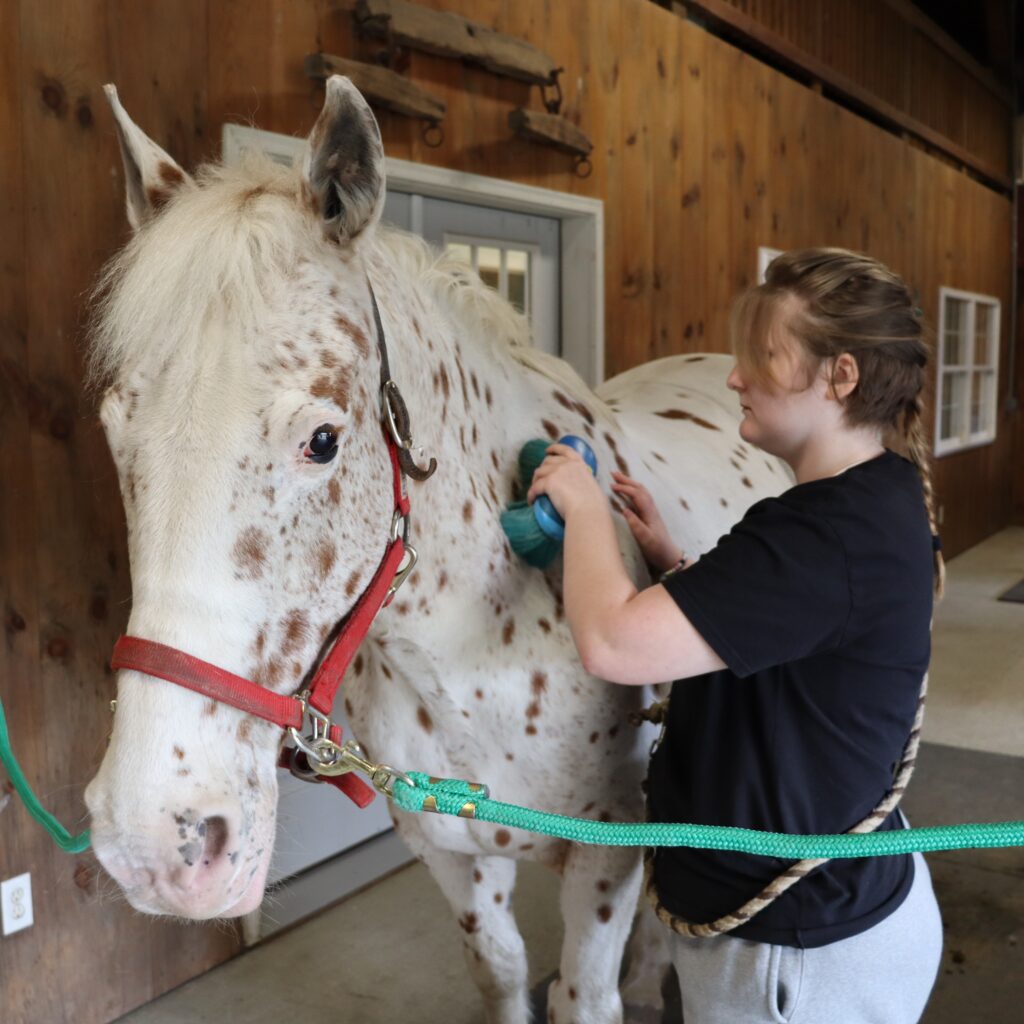
“I think for Zoe, the word that came up for me at the end of the session was resilience,” adds Jess. “She did a really great job.”
Zoe easily reflects on her time working with Gandalf, “I can’t remember why I didn’t like him. I know once I got to know him, I changed my mind. I know he likes me, too. Group really helped me with learning new coping skills when I’m upset. Sometimes you just need to breathe.”
Across programs, Green Chimneys staff note how students often share more, or show more, when an animal is involved. Whether in a social work session, performing caretaking tasks or during casual interaction, students tend to open up more freely in the company of animals.
“Engaging in an activity together eases the pressure of intense face-to-face interactions, allowing thoughts and emotions to flow organically,” offers Becky. This is the basis for the diverse animal-assisted interventions that embody Green Chimneys’ therapeutic approach.
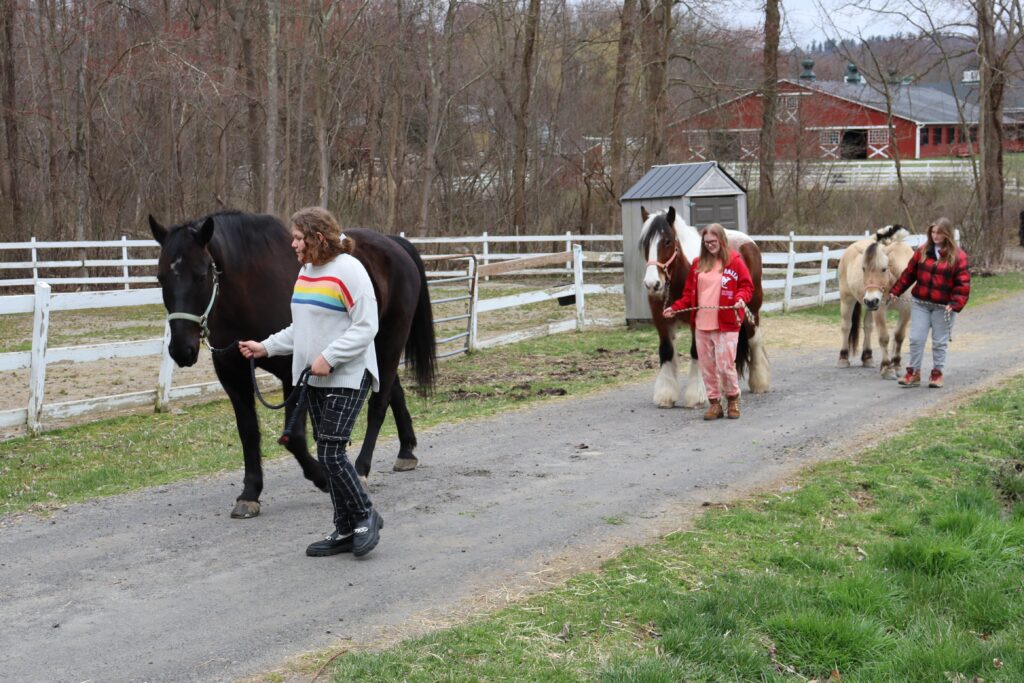
In weekly Hoof Harmony sessions spent grooming, walking, and tending to their equine partner, students like Zoe gain insight into their own emotions. This fosters a deeper understanding of themselves and their relationships with others.
Designed to help students explore themes in respect, communication, and relationship-building, Hoof Harmony uses facilitated equine activities. In weekly group sessions, participants are paired with a horse in exercises that allow them to identify and practice effective communication skills, and respect within relationships, through the partnership built with their horse.
The program is part of an array of specialized therapy groups that provide skills development and therapeutic support to help residential students meet the goals and objectives outlined in their individual treatment plans. Certified Therapeutic Recreation Specialists, Licensed Creative Arts Therapists, clinicians, farm staff, and residential life staff collaborate to develop and facilitate these groups. Learn more about comprehensive clinical support provided in our residential program
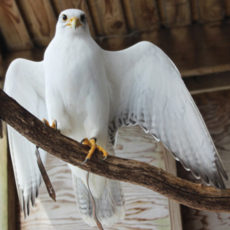
Crowned the best for falconry in medieval times, gyrfalcons were once reserved for kings. As the largest falcon in the world, with exquisite plumage ranging from bright white to deep charcoal, gyrs are revered for their powerful skill of flight. Their long wings make hunting waterfowl from 3,000-feet-high a feasible and fantastical feat. This falcon was flown in the sport of falconry for several years.